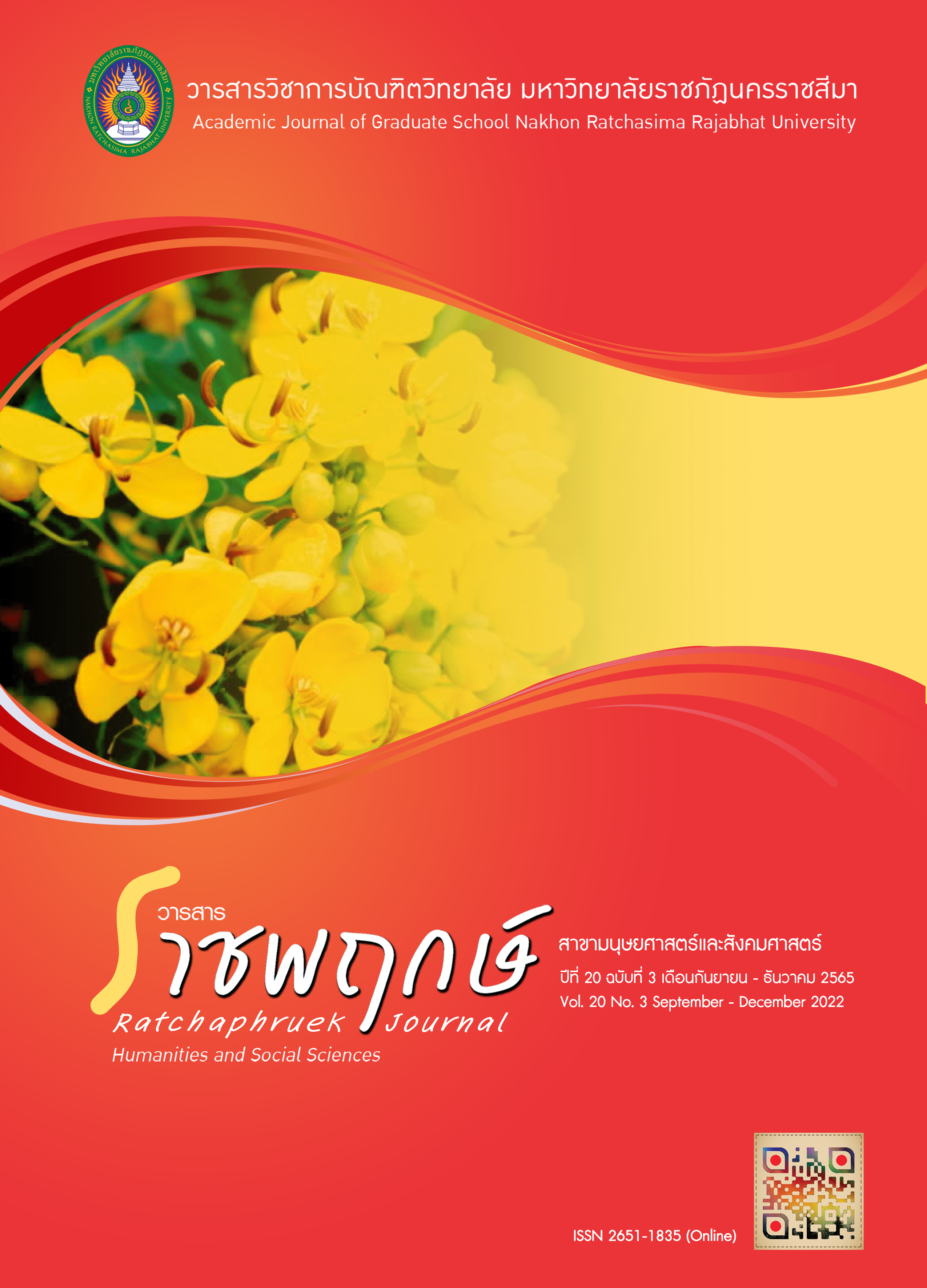Development of Grade 10 Students’ Argumentation Skills in Immune System against COVID-19 through Online Socio-Scientific Issues (SSIs)-Based Teaching
Main Article Content
Abstract
This classroom action research aimed to enhance students’ argumentation skills through online socio-scientific issues (SSIs)-based teaching. The study group included 40 grade 10 students in the science and mathematics program of a government secondary school in Bangkok, which were selected by purposive selection. The research instruments included the argumentation skills test and the informal interview form. The argumentation skills test included one socio-scientific issue in COVID-19 vaccination with four open-ended questions measuring four components: 1) Claim and warrant; 2) Evidence; 3) Counterargument; and 4) Supportive argument. The quantitative data were analyzed by frequencies, percentages, and gains cores and the qualitative data were analyzed by content analysis. The findings revealed that after learning with online SSIs-based teaching, all students (100.00%) improved their argumentation skills. The highest number of students was at intermediate level of argumentation skills. Evidence was the most developed component, while supportive argument was the least developed component.
Article Details

This work is licensed under a Creative Commons Attribution-NonCommercial-NoDerivatives 4.0 International License.
References
กระทรวงศึกษาธิการ. (2551). หลักสูตรแกนกลางการศึกษาขั้นพื้นฐาน พุทธศักราช 2551. กรุงเทพฯ: โรงพิมพ์ชุมนุมสหกรณ์การเกษตรแห่งประเทศไทย.
วรัญญา จีระวิพูลวรรณ. (2563). การโต้แย้งและวิทยาศาสตร์ศึกษา. วารสารวิชาการมหาวิทยาลัยราชภัฏอุดรธานี, (8)1, น. 1-24.
วิไลวรรณ ทรงศิลป์ และชาตรี ฝ่ายคำตา. (2560). การโต้แย้งทางวิทยาศาสตร์ของนักเรียนชั้นมัธยมศึกษาปีที่ 4 ในประเด็นทางสังคมที่เกี่ยวข้องกับวิทยาศาสตร์. วารสารมหาวิทยาลัยราชภัฏมหาสารคาม, 11(3), น. 175-184.
ศิริชัย กาญจนวาสี. (2557). การคำนวณคะแนนพัฒนาการ (Gain Scores). สารสมาคมวิจัย สังคมศาสตร์แห่งประเทศไทย, 1(1), น. 1-20.
ศูนย์ดำเนินงาน PISA แห่งชาติ สถาบันส่งเสริมการสอนวิทยาศาสตร์และเทคโนโลยี. (2564). ผลการประเมิน PISA 2018 การอ่าน คณิตศาสตร์ และวิทยาศาสตร์. กรุงเทพฯ: สถาบันส่งเสริมการสอนวิทยาศาสตร์และเทคโนโลยี (สสวท.).
Atabey, N. & Topçu, M. S. (2017). The effects of socioscientific issues-based instruction on middle school students' argumentation quality. Journal of Education and Practice, 8(36), pp. 61-71.
Atabey, N. (2021). Science teachers’ argument types and supporting reasons on socioscientific issues: COVID-19 Pandemic. International Journal of Psychology and Educational Studies, 8(2), pp. 214-231.
Jimenez-Aleixandre, M. P. & Erduran, S. (2007). Argumentation in science education: An overview. In Erduran, S., Jimenez-Aleixandre, M. P. (Eds.), Argumentation in science education: Perspectives from classroom-based research (pp. 3-28). Dordrecht, Netherlands: Springer.
Jonassen, D. H. & Kim, B. (2010). Arguing to learn and learning to argue: Design justifications and guidelines. Educational Technology Research and Development, 58(4), pp. 439-457.
Kemmis, S. & McTaggart, R. (2007). Participatory action research: Communicative action and the public sphere. In N. K. Denzin & Y. S. Lincoln (Eds.), Strategies of Qualitative Inquiry (3rd ed., pp. 271-330). Thousand Oaks, California: Sage.
Lin, S. S. & Mintzes, J. J. (2010). Learning argumentation skills through instruction in socioscientific issues: The effect of ability level. International Journal of Science and Mathematics Education, 8(6), pp. 993-1017.
National Research Council (NRC). (2013). Next generation science standards: for states, by states. Washington, DC: The National Academies Press.
Organization for Economic Co-operation and Development (OECD). (2019). PISA 2018 assessment and analytical framework. Paris: PISA, OECD Publishing.
Sadler, T. D. (2004). Informal reasoning regarding socioscientific issues: A critical review of research. Journal of Research in Science Teaching: The Official Journal of the National Association for Research in Science Teaching, 41(5), pp. 513-536.
Suephatthima, B. & Faikhamta, C. (2018). Developing students’ argument skills using socioscientific issues in a learning unit on the fossil fuel industry and its products. Science Education International, 29(3), pp. 137-148.
Tyrrell, D. C. & Calinger, M. (2020). Breaking the COVID-19 ice: integrating socioscientific issues into problem-based learning lessons in middle school. In EdMedia+ Innovate Learning (pp. 120-125). Association for the Advancement of Computing in Education (AACE).
Tsai, C. Y. (2018). The effect of online argumentation of socio-scientific issues on students' scientific competencies and sustainability attitudes. Computers & Education, 116, pp. 14-27.


